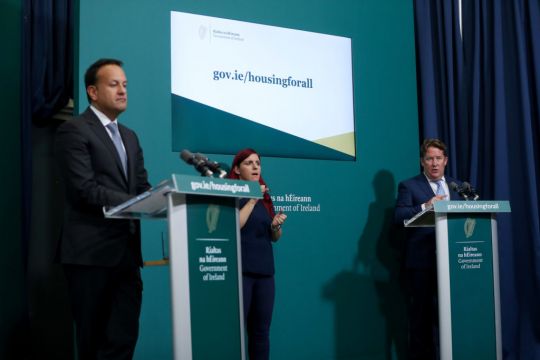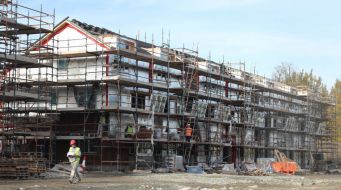Part of the Government’s plan to tackle the country’s chronic housing crisis has been criticised as “unrealistic” and “more of the same”.
Earlier this month, the Government unveiled its plans to spend four billion euro annually on building 33,000 new homes every year by the end of the decade.
The Housing For All plan has committed to building an average of 9,500 social homes every year and to eradicate homelessness by 2030.
Discussing the plan at a Simon Communities conference, housing experts criticised the focus on supply issues rather than affordability.
Lorcan Sirr Lecturer and Social Housing analyst states at the Simon Week Conference 'If the measure of success of Housing for All is increasing supply the plan won't work. It needs to be the right supply, in the right place and at the right time'
Advertisement— Simon Communities (@SimonCommunity) September 27, 2021
Architect Mel Reynolds said the delivery of social housing is one of the biggest elements of the plan.
He said that an audit carried out in 2018 revealed there is publicly owned land capacity to build almost 50,000 dwellings by local authorities.
Mr Reynolds said that only a fraction of available land has been used to build homes under the Government’s former housing plan, Rebuilding Ireland.
“The ambition of building 9,500 social homes looks pretty unrealistic,” he added.
“For local authorities to be building that level of new homes on their own land, they would need to have started approving these a year and a half ago because there is an 18 months four-stage approval process, which hasn’t happened yet.
“It is likely that the way this will be achieved is through turnkey purchases outside Dublin and through leases or HAP (Housing Assistance Payment) within Dublin.
“In the next year or two we are not going to see any significant change from current housing policy.
“What’s coming down the tracks is we are going to see more of the same.”
Lorcan Sirr, a lecturer, housing policy analyst and expert in rental markets, said that while it is good to have a plan to hold policy makers and ministers to account, there remained a number of “weaknesses”.
Mr Sirr, who is also a member of Residential Tenancies Board Research Committee and board member of the Irish Refugee Council, added: “One of the big weaknesses is of course is that it is market-based and seems to rely on the private market for a huge number of its houses.
We're delighted to start our Simon Week 2021 conference with a message from the minister for housing Daragh O'Brien. pic.twitter.com/nxZIcYZIN7
— Simon Communities (@SimonCommunity) September 27, 2021
“We are also not really defining what success is in housing and what does it mean in housing policy. Our policy makers are still not articulating why housing is a shared public concern.
“We should all have a vested interest in seeing housing for our kids and families. There is a lot of opportunities to mop up things that we didn’t do properly before which includes the regeneration of existing properties.
“I would have thought the plan would be more radical but that is the price you pay for being in coalition.
“The other threat is the ideology around supply. If they measure their success around increasing supply then this is not going to work for lots of reasons.
“The supply, supply, supply thing is frustrating in that it has never brought down house prices.
The latest figures, from the Department of Housing, Planning and Local Government show 8,212 men, women and children were in homeless emergency accommodation in Ireland during August.
This is an increase of 80 people from July 2021 figures, released last month. pic.twitter.com/kDMnLh8uJh— Simon Communities (@SimonCommunity) September 24, 2021
“It needs to be the right type of supply in the right location at the right price.”
Architect Orla Hegarty agreed, saying the Government needs to move away from the “supply, supply, supply mantra”.
“We to move towards affordability,” she added.
“The crisis in housing is unaffordability, it’s in people losing their homes because they cannot afford them, it’s in people not moving on or not moving to better housing because they cannot afford it, it’s in overcrowding.
“We are not going to solve that with supply in the private market.
“They key thing is that we need housing for everybody.”
In a pre-recorded video message, Minister for Housing Darragh O’Brien told the conferences that there is no shortage of “will or determination” to deal with the country’s homelessness.
“It remains for me the top priority for my department and for this Government. Resources and funding are not an obstacle to the urgent efforts required,” Mr O’Brien added.
“Good progress has been made and continues to be made to reduce homelessness.
“We have seen an overall drop in homelessness of 17 per cent since October 2019 when numbers were at their highest.”







